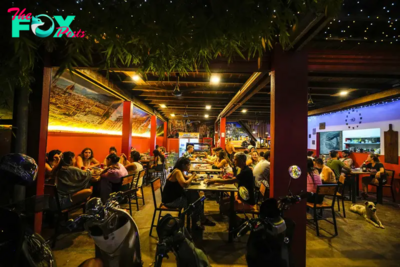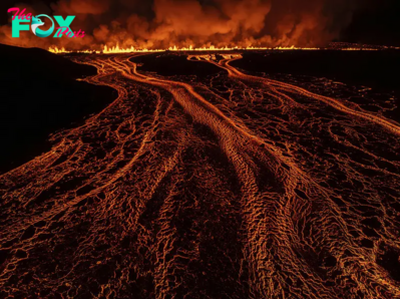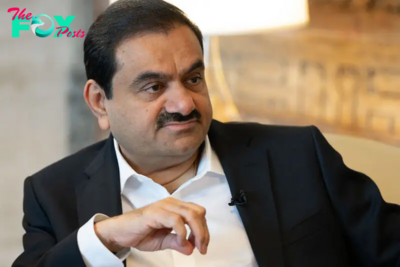World News
The Sorry State of Tunisia’s Democracy
The fruit vendor Mohamed Bouazizi’s self-immolation 14 years ago inspired Tunisians to topple their longtime dictator and kicked off the 2011 Arab Spring. Of all the countries in the region that caught the revolutionary bug, Tunisia was the only one that managed to build a multiparty democracy with separation of powers and freedom of expression, for a while becoming the poster child of successful democratization.
Then came President Kais Saied, an uncharismatic constitutional lawyer, who was elected in 2019 on a populist anti-corruption platform that played to Tunisians’ post-revolutionary disillusion with political gridlock and economic stagnation. Five years later, the birthplace of the Arab Spring has become the scene of alarming democratic backsliding.
The first major sign of trouble was in 2021, when Saied used the COVID-19 pandemic to centralize his power. The Tunisian President suspended the constitution, fired his Prime Minister, and invoked emergency protocols to govern by decree. In 2022, he went further still, dissolving parliament and rewriting the constitution. The persecution of opposition politicians, critics, activists, journalists, and union leaders has only increased since. That includes Rached Ghannouchi, leader of the main opposition Ennahda Party; Lotfi Mraihi, head of the Republican Union Party; and Abir Moussi, president of the Free Destourian Party. All three are now behind bars on trumped-up charges.
With Saied’s term set to expire on Oct. 23, Tunisia’s strongman is seeking five more years as President in new elections he scheduled for Oct. 6. But having spent his entire tenure dismantling democratic checks and balances, consolidating power, and muzzling dissent, this contest will be neither free nor fair.
All credible would-be challengers to Saied have either been imprisoned, scared into exile, or excluded from running. On Sept. 2, Tunisia’s supposedly independent electoral commission—whose seven members were appointed by the President—approved just two relatively unknown candidates, in defiance of an order by the country’s highest court to allow three additional candidates to run. One of them, Ayachi Zammel, has since been detained and charged with falsifying ballot signatures (it is unclear whether he will be allowed to run).
Despite some public concern about Saied’s autocratic drift, he remains relatively popular. His xenophobic and anti-establishment rhetoric resonates strongly with a large segment of the population that believes democracy did little to improve their living standards.
Saied’s biggest vulnerability comes from the worsening socioeconomic conditions most Tunisians have experienced under his rule. After all, the one thing people dislike more than a dictator is a dictator who fails to deliver the goods.
While Saied has so far managed to stave off a sovereign default on Tunisia’s bloated foreign debt without resorting to a maligned but much-needed IMF loan, this has come at the cost of higher iNFLation, slower economic growth, and frequent food and fuel shortages. The government is also increasingly resorting to borrowing from the once-independent central bank as well as local banks to cover its growing financing needs, which will further drive up iNFLation and create financial risks. As economic challenges deepen, citizens’ trust in their government will falter. Demands for change will build. Protests and repression may follow. Perhaps there will even be calls for new elections.
But Tunisians will have little recourse after Kais Saied’s near-certain—and certainly illegitimate—reelection this October entrenches Tunisia’s autocracy and marks the definitive end of the Arab Spring’s last surviving democratic experiment.
-

 World News1d ago
World News1d agoWorld’s Best Brands – India
-

 World News1d ago
World News1d agoInternational Criminal Court Issues Arrest Warrants for Netanyahu and Hamas Commander
-

 World News1d ago
World News1d agoLandmark Bill to Ban Children From Social Media Introduced in Australia’s Parliament
-

 World News1d ago
World News1d agoAmerican and Australian Tourists Die in Laos After Drinking Tainted Alcohol
-

 World News1d ago
World News1d agoSee Photos of the Seventh Volcanic Eruption on Iceland’s Reykjanes Peninsula in 12 Months
-

 World News1d ago
World News1d agoMuhammad Yunus on the Race to Build Bangladesh 2.0
-

 World News2d ago
World News2d agoU.S. Charges Indian Billionaire Gautam Adani With Defrauding Investors
-

 World News2d ago
World News2d agoU.S. Vetoes U.N. Resolution Demanding a Cease-Fire in Gaza

















